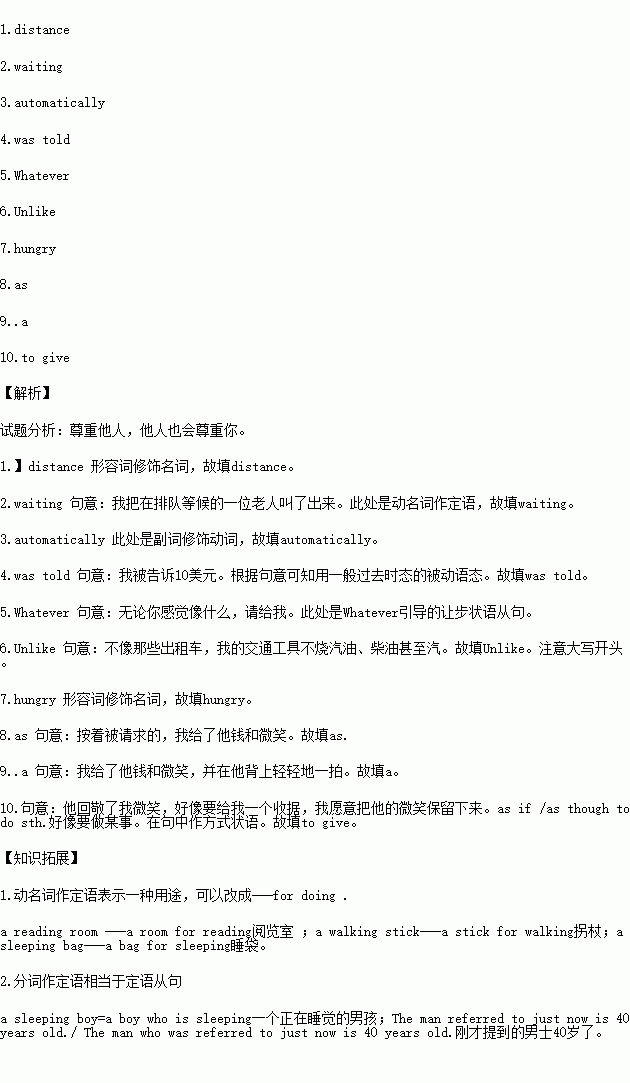题目内容
语法填空
阅读下面材料,在空白处填入适当的内容(1个单词)或括号内单词的正确形式。
I was traveling in a small place in New York. That place had no taxi for a short 1. (distant). One had to take a rickshaw(人力车).
I called out for an old man in the 2. (wait) line. Before I got on the rickshaw, I 3. (automatic) asked how much he would charge to take me across to the Mall. I 4. (tell) “10 dollars”. Then I started bargaining. He just gave a hard smile and said, “ 5. you feel like, please give me. It is not necessary to bargain on this small amount.”
I was a bit ashamed at myself and kept quiet while he continued, “ 6. (like) those taxis, my vehicle does not run on petrol or diesel(柴油) or even gas; it runs on my sweat. So please give it to me with a smile, for the money has to feed so many 7. (hunger) mouths at home.”
When we reached the Mall, I gave him the money and the smile 8. requested and added 9. gentle pat on his back. He smiled back as if 10. (give) me a receipt and I would preserve his smile for a long time.
 阅读快车系列答案
阅读快车系列答案
